Photo: Jonathan Hillyer
The James LeVoy Sorenson Molecular Biotechnology Building (SMBB), located on the new 11-acre Interdisciplinary Research Quadrangle, stands as a cornerstone of innovation at the University of Utah. The 205-square-foot facility, envisioned as a USTAR Innovation Center, is tailored to catalyze transdisciplinary research in Biomedical and Neuroscience fields while fostering the growth of new businesses in engineering, advanced technologies, and medicine within Utah. Designed to accommodate twenty-four principal research investigators and their teams, SMBB integrates diverse scientific investigation strengths, driving scientific innovation and facilitating the commercialization of research. The building's architectural design prioritizes collaboration, featuring a multi-level "Town Square" that connects various research neighborhoods and serves as a vibrant hub for interaction. This central atrium, inspired by the surrounding mountains' canyons, offers breathtaking views of the Salt Lake City Valley and promotes a sense of unity and connectivity. Sustainable and energy-efficient design principles, combined with carefully selected materials and natural lighting, underscore the building's commitment to environmental responsibility with LEED Gold certification. Energy efficiency, high performance systems, access to natural light and carefully selected materials all contribute to the environmentally sensitive design approach.
Salt Lake City, UT
LEED Gold
205,000 sf
Research, Engineering + Applied Science, Imaging, Learning Spaces, Academic
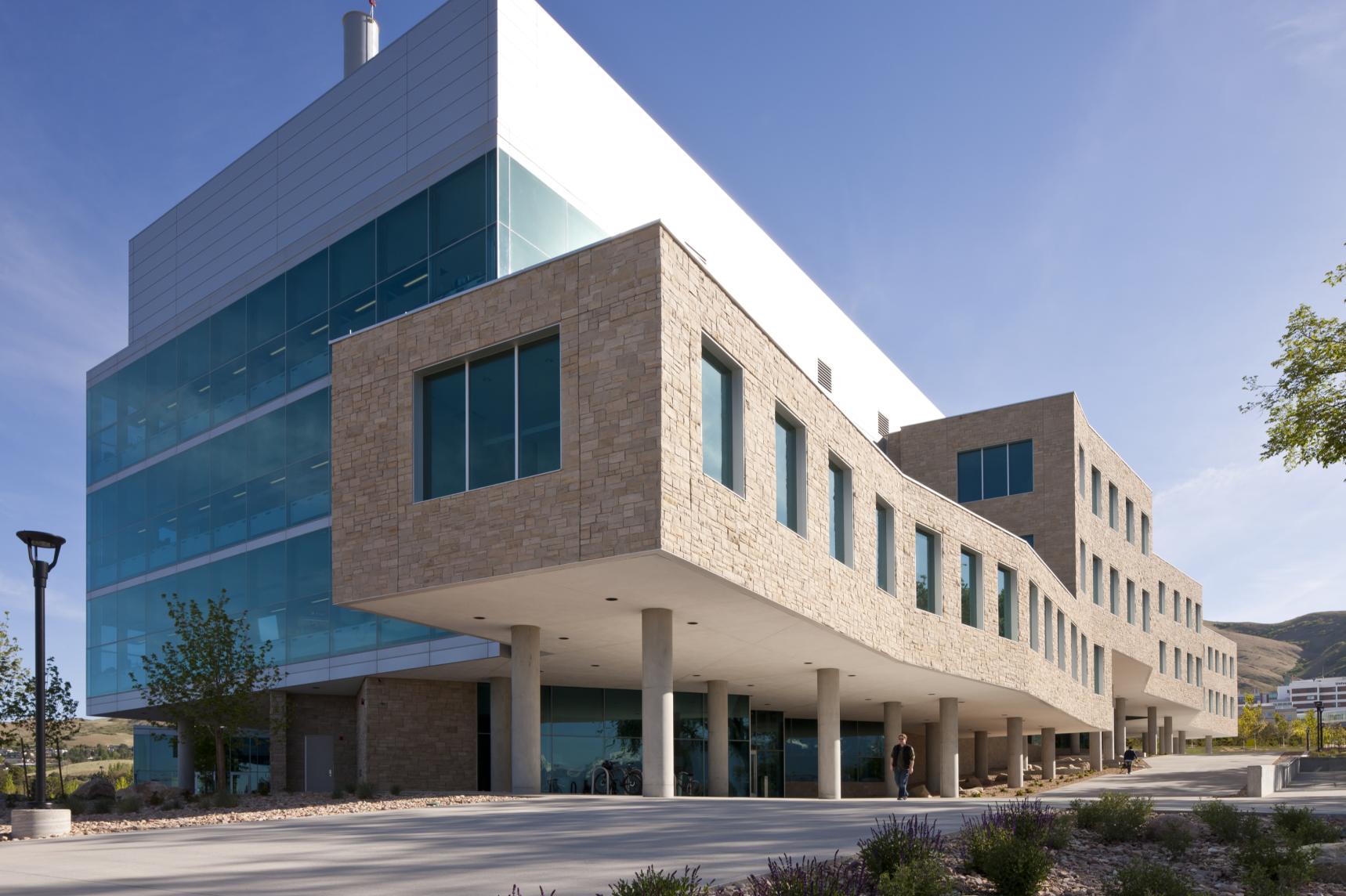
Photo: Jonathan Hillyer
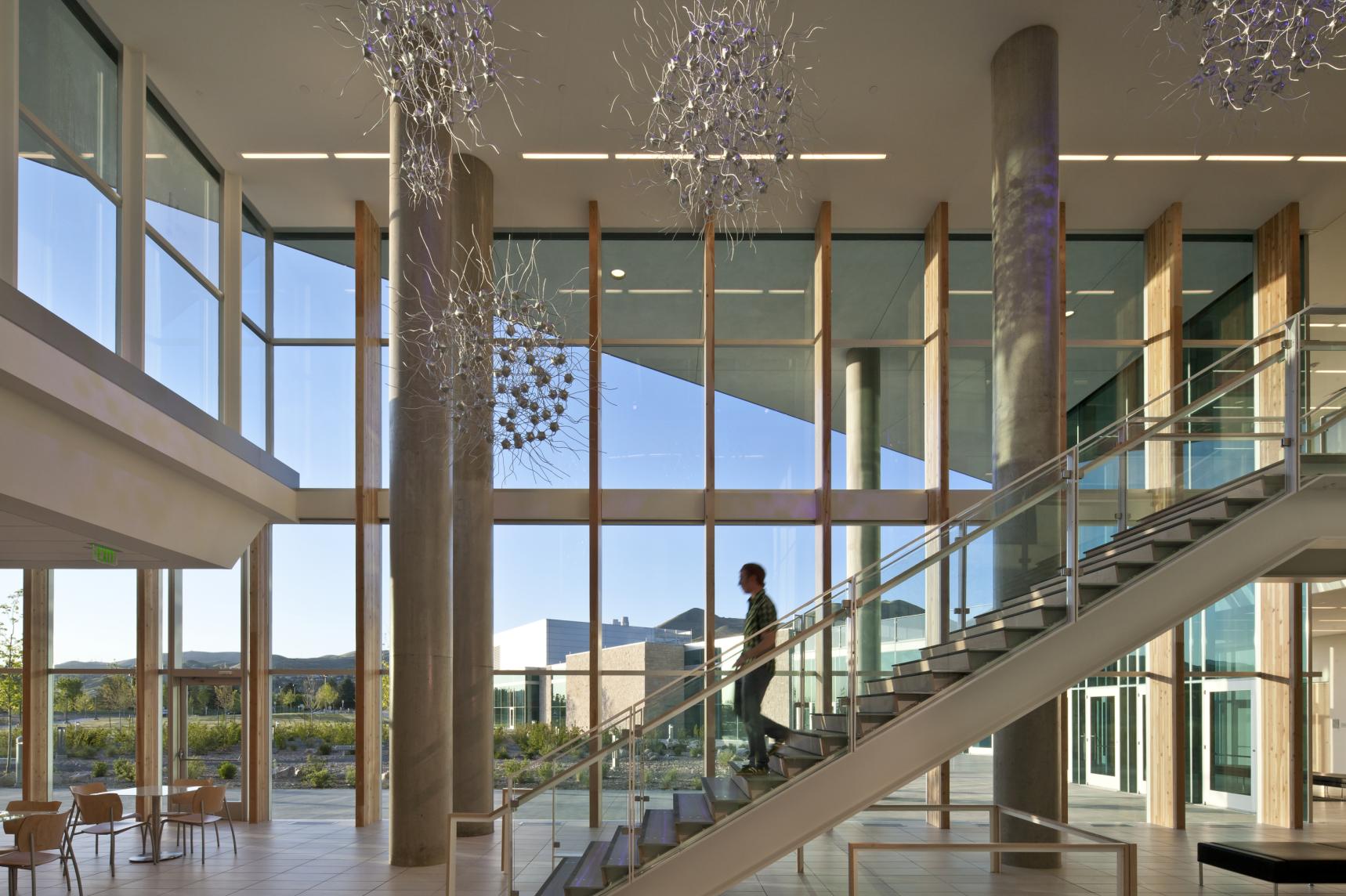
Photo: Jonathan Hillyer
“This is a stunningly gorgeous facility – everybody likes to work in nice well-lit spaces with beautiful views.”
— John A. White, Executive Director of the Brain Institute
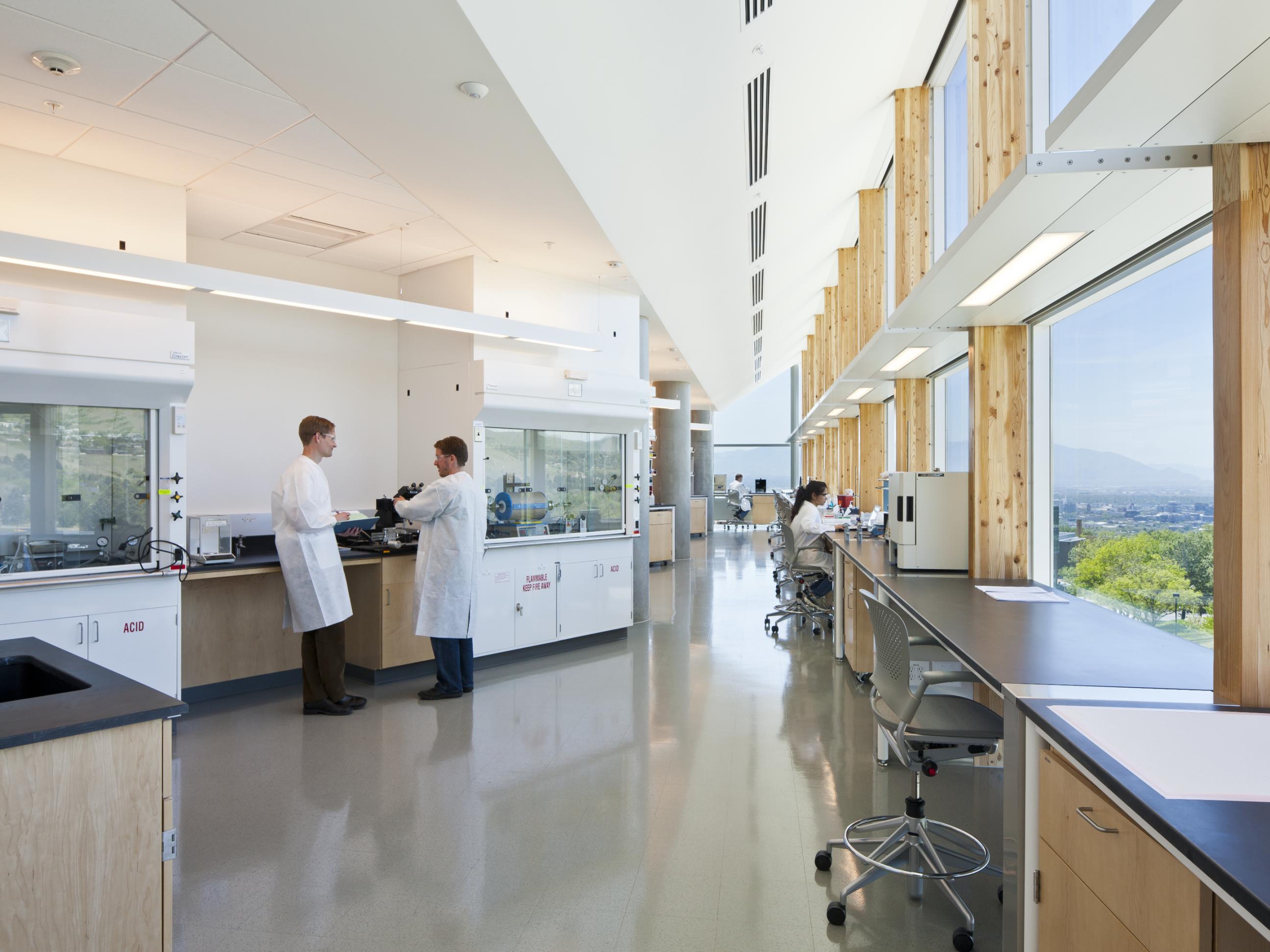
Photo: Jonathan Hillyer
Grand Award in Structural Systems
ACEC Utah—
Excellence in Concrete Award
ACI Intermountain Chapter
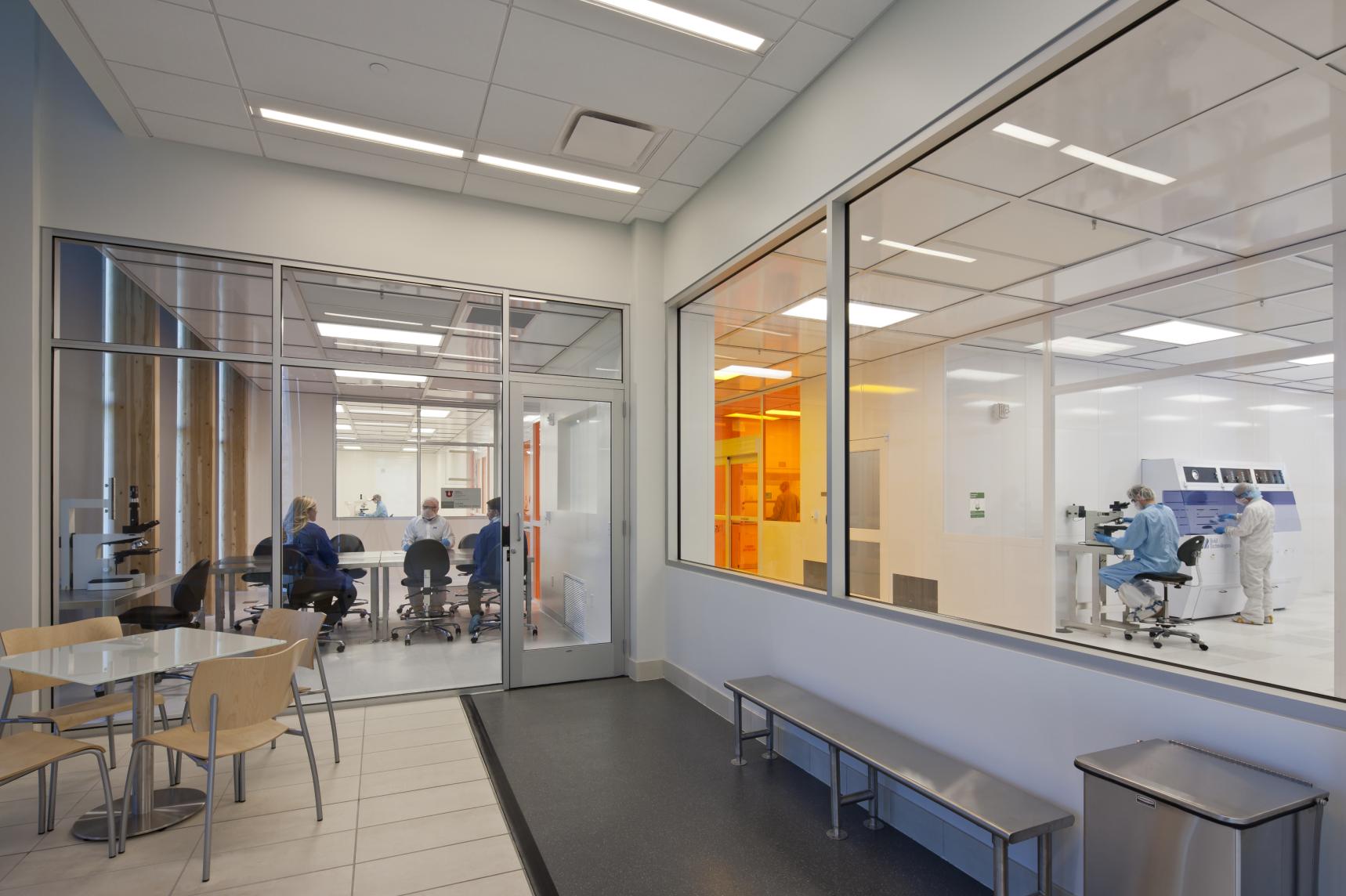
Photo: Jonathan Hillyer
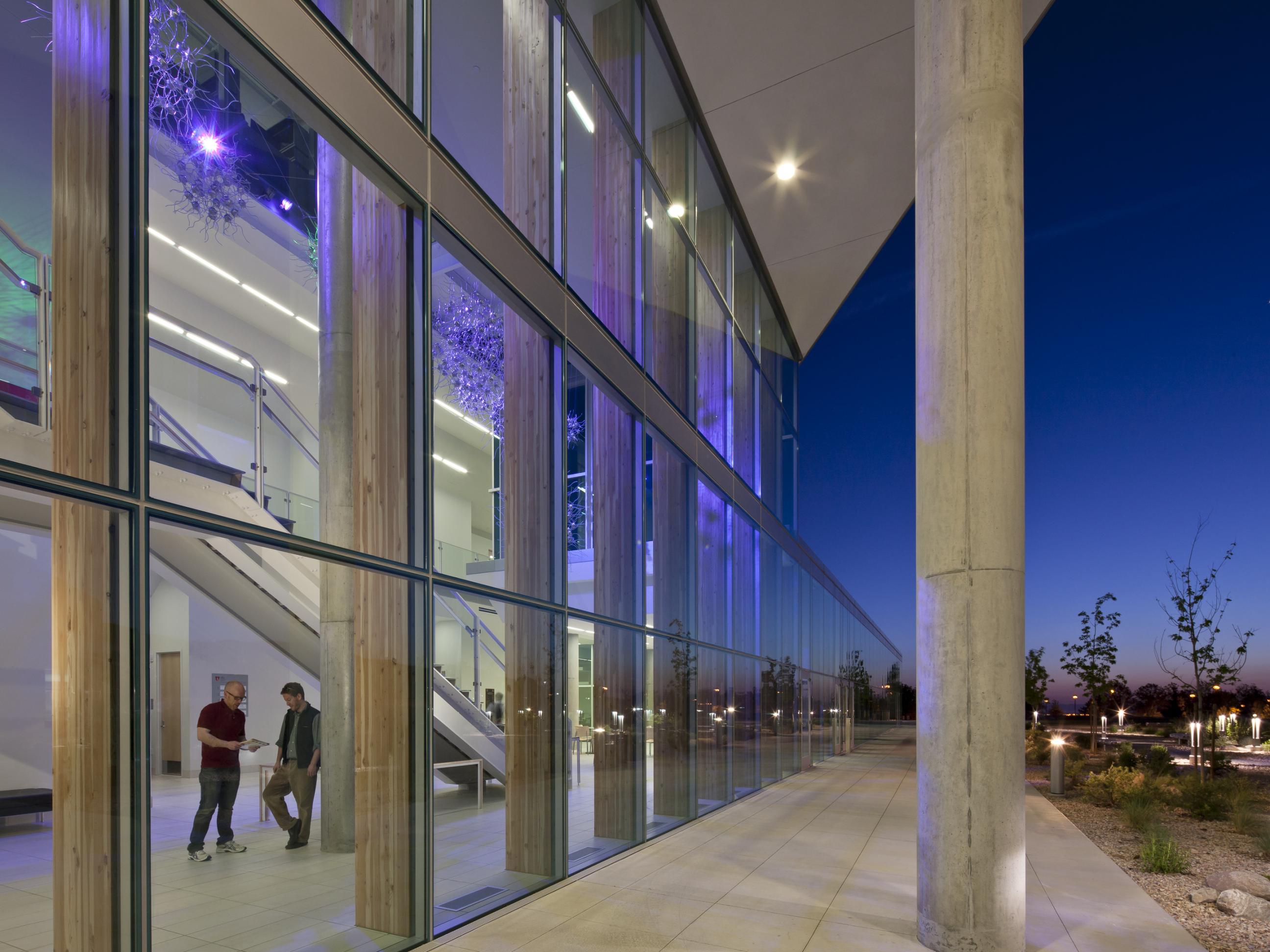
Photo: Jonathan Hillyer